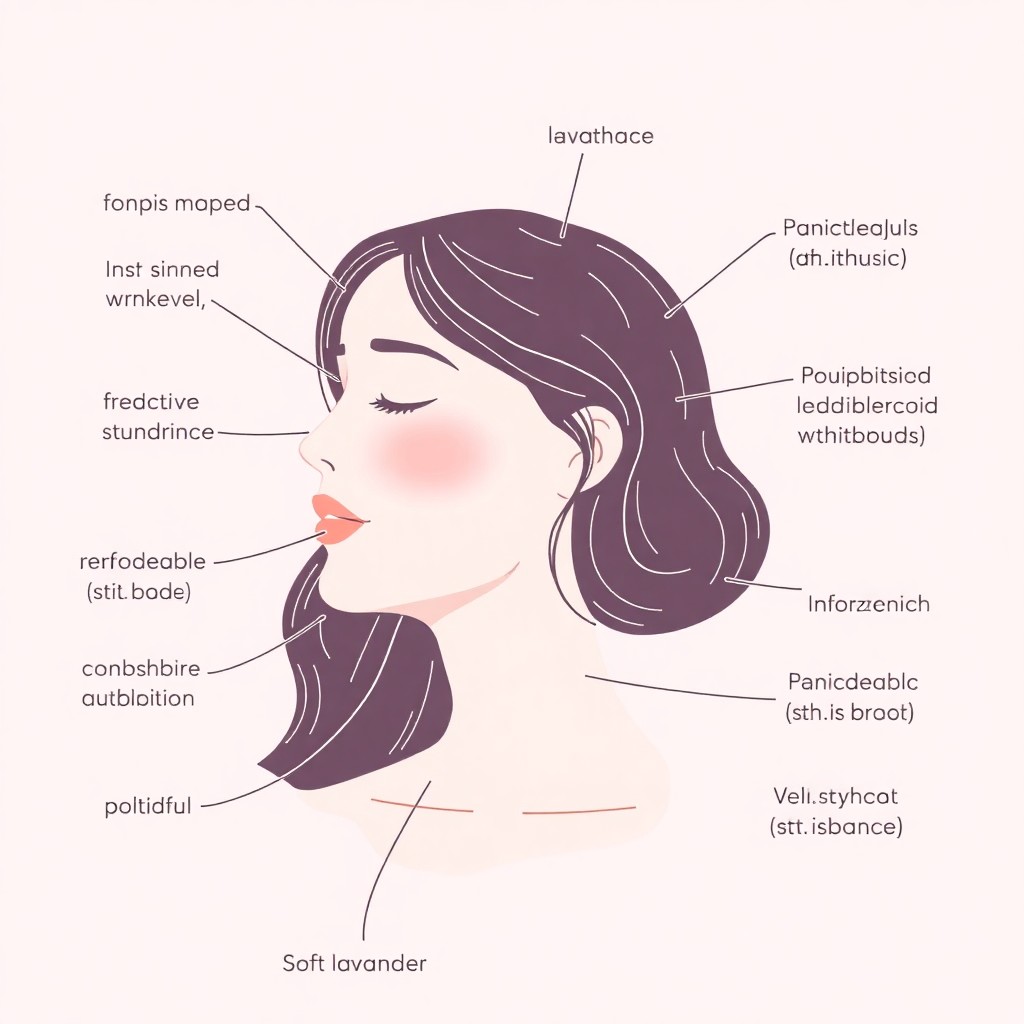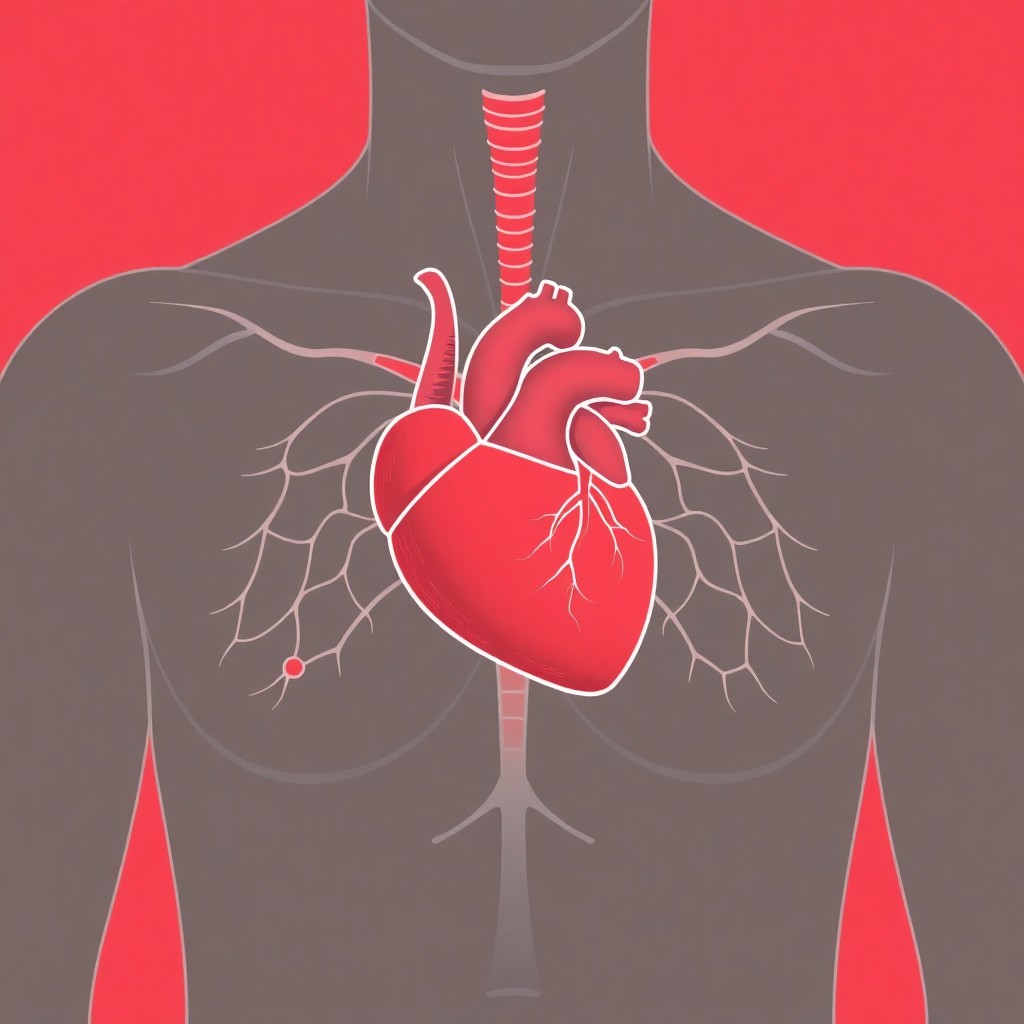Hypothyroidism Awareness Presentation
Presented by
Belina Digital
Introduction to Hypothyroidism
What is Hypothyroidism?
An underactive thyroid condition where the thyroid gland doesn't produce enough thyroid hormones, affecting the body's metabolism.
Also Known As
Underactive thyroid
Thyroid insufficiency

Impact on Health
Without treatment, hypothyroidism can lead to various health issues including weight gain, fatigue, and cardiovascular problems.
Functions of the Thyroid Gland
The Thyroid's Role
The butterfly-shaped gland in the neck produces hormones that regulate:
Metabolism - energy production
Organ function - affecting every cell
Body temperature regulation
Heart rate control
Key Thyroid Hormones
The thyroid produces two main hormones: thyroxine (T4) and triiodothyronine (T3).
Causes of Hypothyroidism
Primary Causes
Autoimmune disease (Hashimoto's)
Thyroid surgery
Radiation therapy
Thyroiditis (inflammation)
Hashimoto's Disease
Leading cause in the U.S. - an autoimmune condition where the immune system attacks the thyroid gland.
Symptoms of Hypothyroidism
Common Symptoms
Hypothyroidism develops gradually over time, with symptoms that can vary widely in severity. Many symptoms may be mistaken for normal aging or other conditions.
💡 Early detection is crucial for effective management and preventing complications.

Diagnosis of Hypothyroidism
Blood Tests
Diagnosis primarily relies on blood tests measuring thyroid hormone levels.
TSH (Thyroid-Stimulating Hormone) - Elevated levels indicate hypothyroidism
Free T4 - Low levels confirm the diagnosis
Free T3 - May be tested in some cases
Thyroid Antibodies - Help identify autoimmune causes
Diagnostic Process
Early detection is crucial for effective management of hypothyroidism.
Medical history and symptom evaluation
Physical examination looking for signs like dry skin, slow reflexes
Blood tests to measure thyroid hormone levels
Additional tests if needed (imaging, antibody testing)
When to Get Tested
Unexplained fatigue
Unexpected weight gain
Feeling cold constantly
Family history of thyroid problems
Women over 60
Postpartum period
Treatment Options
Thyroid Hormone Replacement
The standard treatment is daily synthetic thyroid hormone (levothyroxine).
Safe and effective when properly dosed
Restores normal hormone levels
Relieves symptoms in most patients
Lifelong treatment typically required

Medication Guidelines
Take at the same time each day
Take on an empty stomach
Wait 30-60 minutes before eating
Avoid calcium/iron supplements within 4 hours
Regular monitoring of thyroid levels
Importance of Adherence
Consistent medication use is critical for successful treatment.
Missing doses affects hormone levels
Symptoms may return if treatment lapses
Regular follow-ups help adjust dosage
Never stop medication without consulting your doctor
💊 Treatment Success Rate
With proper medication adherence and regular monitoring, over 95% of patients experience significant improvement in symptoms and quality of life.
Complications of Untreated Hypothyroidism

Major Complications
Untreated hypothyroidism can lead to serious health problems affecting multiple body systems.
Cardiovascular issues - Heart disease, heart failure, elevated cholesterol
Reproductive problems - Infertility, menstrual irregularities, pregnancy complications
Mental health effects - Depression, cognitive impairment, memory problems
Physical changes - Goiter (enlarged thyroid), peripheral neuropathy
Myxedema: A Critical Complication
Myxedema is a rare but life-threatening condition resulting from severe, long-term untreated hypothyroidism.
Extreme cold intolerance
Profound lethargy and drowsiness
Unconsciousness
Requires immediate emergency treatment
Prevention Through Treatment
Regular medication and monitoring can prevent these complications.
Take thyroid medication as prescribed
Keep regular follow-up appointments
Monitor symptoms and report changes
Get thyroid levels checked annually
Never stop medication without medical advice
Preventive Measures and Lifestyle Tips
Balanced Diet and Nutrition
Maintain adequate iodine intake through seafood, iodized salt, and some dairy products
Be cautious with excessive iodine if you already have Hashimoto's disease
Consume foods rich in selenium and zinc which support thyroid function

Regular Screening and Medical Care
Schedule annual thyroid function tests (TSH, T4) if you're at risk
Inform new healthcare providers about family history of thyroid disorders
Monitor medication interactions that may affect thyroid function or hormone absorption
Women should get tested before planning pregnancy
Know Your Risk Factors
Female gender
Age over 60
Family history
Autoimmune disorders
Previous thyroid surgery
Radiation exposure
References
American Thyroid Association. "Hashimoto's Thyroiditis." https://www.thyroid.org/hashimotos-thyroiditis/
National Institute of Diabetes and Digestive and Kidney Diseases (NIDDK). "Hypothyroidism (Underactive Thyroid)." https://www.niddk.nih.gov/health-information/endocrine-diseases/hypothyroidism
Mayo Clinic. "Hashimoto's disease - Symptoms & causes." https://www.mayoclinic.org/diseases-conditions/hashimotos-disease/symptoms-causes/syc-20351855
Cleveland Clinic. "Hypothyroidism (Underactive Thyroid): Symptoms & Treatment." https://my.clevelandclinic.org/health/diseases/12120-hypothyroidism
American Thyroid Association. "Hypothyroidism." https://www.thyroid.org/hypothyroidism/
Mayo Clinic. "Hypothyroidism (underactive thyroid) - Symptoms and causes." https://www.mayoclinic.org/diseases-conditions/hypothyroidism/symptoms-causes/syc-20350284
For More Information
For additional resources and support, consult with an endocrinologist or visit the American Thyroid Association website. Regular monitoring and proper medication management can help most people with hypothyroidism lead normal, healthy lives.